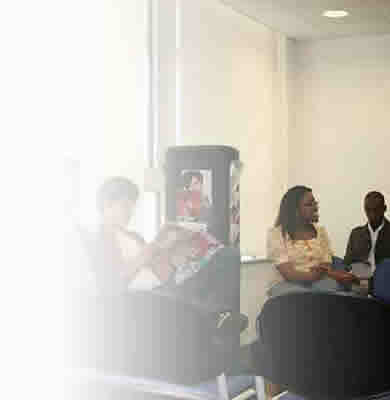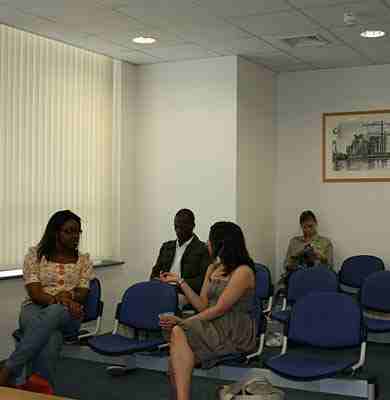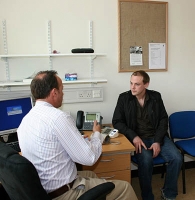Respecting Diversity in Others course for GPs



A fundamental component in promoting equality and valuing diversity is the ability to treat colleagues, patients, carers and others equitably and with respect. By working through case studies, this session will enable you to reflect on how you might develop and apply this in your practice. This session was reviewed by Suchita Shah and last updated in February 2015.
Learning Objectives
By the end of this session you will be able to:
- Recognise the impact of your personal beliefs on your medical practice and patients
- Identify ways in which you can support carers from diverse backgrounds in your working practice
- Recognise that treating colleagues equitably and with respect is integral to good teamwork
- Apply the principle of respect for colleagues to situations where your colleagues may need support
People working in the health service come from a diverse range of backgrounds; as individuals, we each have our own health beliefs, customs, religious and political views.
Dr Arti Maini qualified from St George’s Hospital Medical School in 1999, with an MBBS degree and a BSc in Clinical Neurosciences (first class honours). After completing a medical rotation at Hammersmith Hospital in London, she completed her GP vocational training in Somerset and London and obtained her MRCGP in 2003. She has now worked as a freelance GP in over 80 primary care settings, working with patients and colleagues from diverse backgrounds. She has also been involved with both undergraduate and postgraduate medical education through working as a GP Teaching Fellow at Imperial College London, and as GP Clinical Lead for Clinicians’ Training and Development at NHS Hammersmith and Fulham. She has a Diploma in Medical Education, and is currently working towards an MSc in Medical Education. She is an accredited Master Practitioner in Neuro-Linguistic Programming.
She is currently working as a freelance GP, combining clinical work with teaching and research, and is working with the London Deanery and Management Futures to further her interest and skills in leadership mentoring and executive coaching.

- Communication Impairments Part 4: Autistic Spectru...
- Posted By eIntegrity Healthcare e-Learning
- Posted Date: 2024-12-23
- Location:Online
- This session is the last of four that looks at different speech, language and communication impairme...
- Communication Impairments Part 3: Cleft Palate, He...
- Posted By eIntegrity Healthcare e-Learning
- Posted Date: 2024-12-23
- Location:Online
- This session is the third of four which describe different speech, language and communication impair...
- Communication Impairments Part 2: Specific Speech ...
- Posted By eIntegrity Healthcare e-Learning
- Posted Date: 2024-12-23
- Location:Online
- This session is about speech sound disorder (SSD). It describes the characteristics associated with ...
- Communication Impairments Part 1: Late-talking Tod...
- Posted By eIntegrity Healthcare e-Learning
- Posted Date: 2024-12-23
- Location:Online
- This session is the first of four which describe different speech, language and communication impair...
- Typical Development Part 2: First Words and Early ...
- Posted By eIntegrity Healthcare e-Learning
- Posted Date: 2024-12-23
- Location:Online
- This session gives an overview of the main aspects of how language typically develops in children. I...








